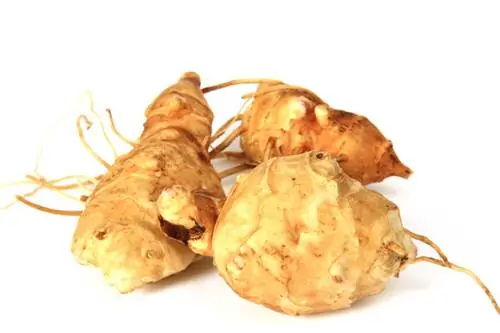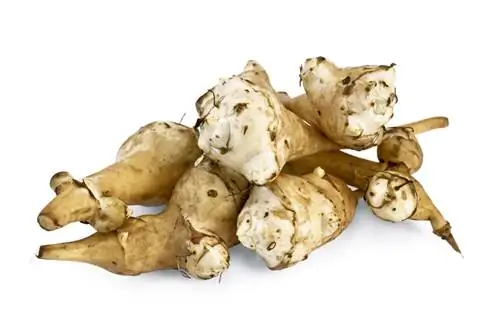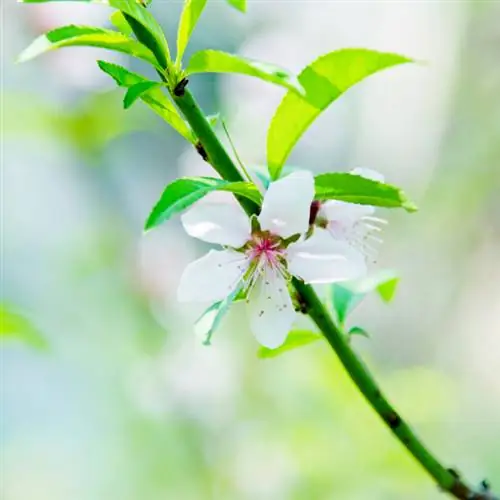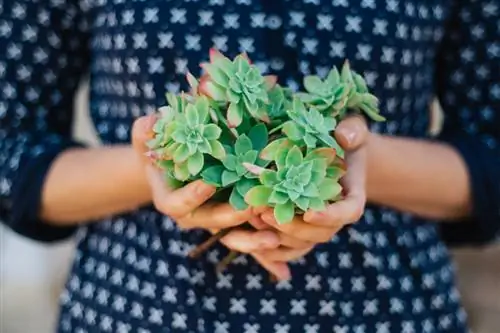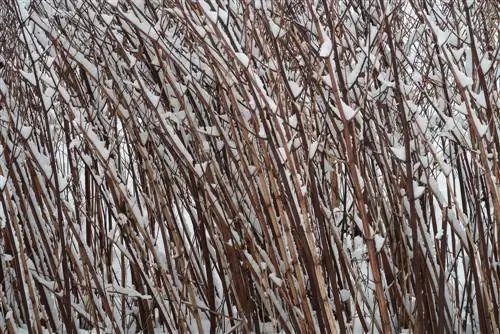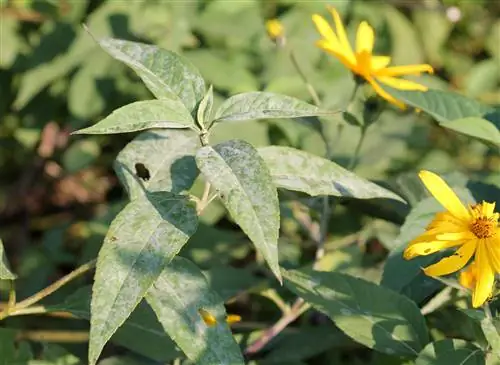- Author admin leonars@hobbygardeners.com.
- Public 2023-12-16 16:46.
- Last modified 2025-01-23 11:19.
Topinambur propagates via seeds and tubers, although propagation via tubers is the less complicated option. Depending on the variety and soil conditions, the plant forms many tubers that simply remain in the ground or are transplanted.
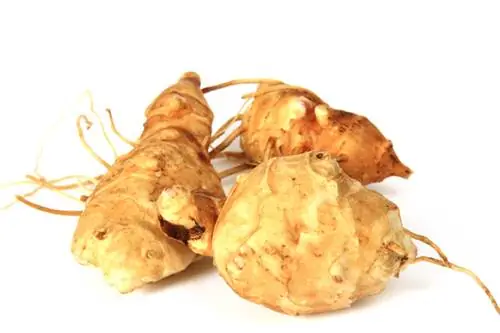
How to propagate Jerusalem artichokes?
Jerusalem artichokes can be propagated by seeds or tubers. When propagated by seeds, sowing takes place in spring, while when propagated by tubers, planting is possible all year round or leaving a tuber in the ground. Regularly digging up tubers prevents uncontrolled spread.
Propagate Jerusalem artichokes through seeds
Basically Jerusalem artichoke can be propagated by seeds. The seed can only be harvested from the flower under favorable conditions. In areas with a short growing season, the seeds do not ripen on the flower.
Purchased seeds are sown in the growing bed in spring. The plants will later be transplanted outdoors.
Propagate Jerusalem artichokes through tubers
The plant itself propagates through the tuber by forming plenty of new tubers every year. Each tuber in turn produces further offshoots.
You propagate Jerusalem artichokes by leaving one tuber in the ground after harvesting or by planting it in another place. It will reliably sprout again next year - if it has not fallen victim to voles.
As long as the ground is not frozen, you can plant new tubers all year round. Jerusalem artichoke is hardy and can withstand sub-zero temperatures down to minus 30 degrees.
Unbridled Multiplication
The biggest problem with growing Jerusalem artichokes in the garden is the spread. Within a few years, the plant multiplies so much through its tubers that it overwhelms all other garden plants.
To limit the spread, dig up tubers regularly. When harvesting, make sure that no more than one tuber remains in the ground. You shouldn't overlook even very small specimens, because they will also sprout again.
- Prefer seeds
- Put plants outdoors later
- Plant tubers all year round
- alternatively leave tubers in the ground
Propagate Jerusalem artichokes in the pot
If you only want to plant a few Jerusalem artichokes, care for the harvested tubers in the bucket. This will prevent the plant from spreading too much.
Tips & Tricks
After four to five years, the soil at the site of the Jerusalem artichoke is exhausted. Then place the harvested tubers in another location with nutritious soil. This ensures that enough strong plants always grow back.

